The lawyers doing pro bono work helping migrant workers get 'equal access to justice'
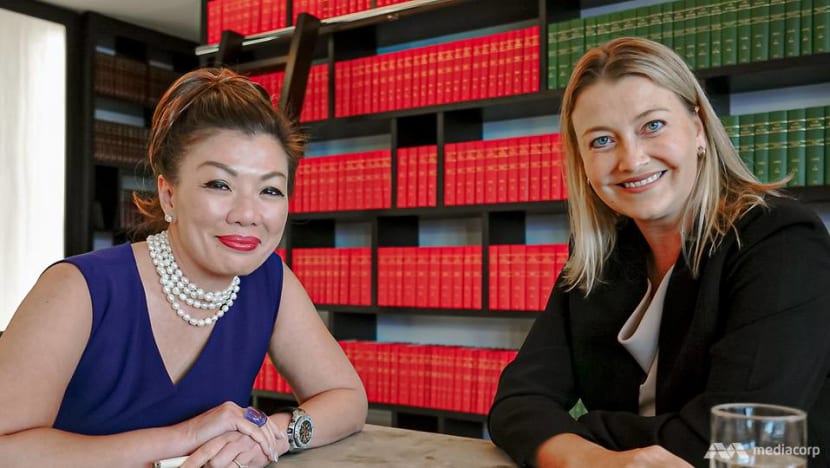
Stefanie Yuen Thio and Tessa Davis are lawyers from two separate law firms - TSMP Law Corporation and Morrison & Foerster respectively - helping migrant workers resolve their problems. (Photo: Rachel Phua)
SINGAPORE: A few months ago, Raj’s* life in Singapore was turned upside down.
The 44-year-old migrant worker from India, who has worked here for more than 12 years, had been looking for a job during the COVID-19 pandemic. He found an employment agent who put out an advertisement on Facebook for a position that promised a monthly salary of about S$1,000.
It turned out to be a scam.
The agent handed him a fraudulent in-principle approval (IPA) for a work permit. Meanwhile, it filed for a work permit without the required written authorisation from Raj – and with a different employer from the one stated on the fake IPA. The salary was less than half of what was promised.
When Raj asked for the unauthorised work permit to be cancelled - as he had, in the meantime, found another job on his own - the employment agent refused to do so. The agent insisted that Raj hand over a large sum of money and take the job at a lower pay instead.
Raj filed a police report and a complaint to the Ministry of Manpower (MOM).
But there was a limit to how long he could stay in Singapore while waiting for the case to be resolved, with the validity of his Special Pass coming to an end. The pass is issued to workers who became unemployed during the dormitory lockdowns and could not be sent home during the confinement period.
He sought help from migrant worker advocacy group ItsRainingRaincoats (IRR), which roped in international law firm Morrison & Foerster.
Raj’s case is one of several that the firm has been involved in, on a pro bono basis.
While lawyers at international firms here are not allowed to give legal advice on Singapore law or represent workers in court, they can help to make sense of their plight.
For Ms Tessa Davis, one of the lawyers in Raj's case, her work typically involves talking to workers to get the facts and timeline laid out, digging for more information that would help the worker’s case, documenting all the evidence if the case goes to court, or talking and writing to employers and employment agencies to sort out the worker’s situation.
“The idea is to try and get involved at an early-stage … so it’s not legal assistance that we’re giving but just maybe helping tip the scales back in their favour a bit,” Ms Davis told CNA.
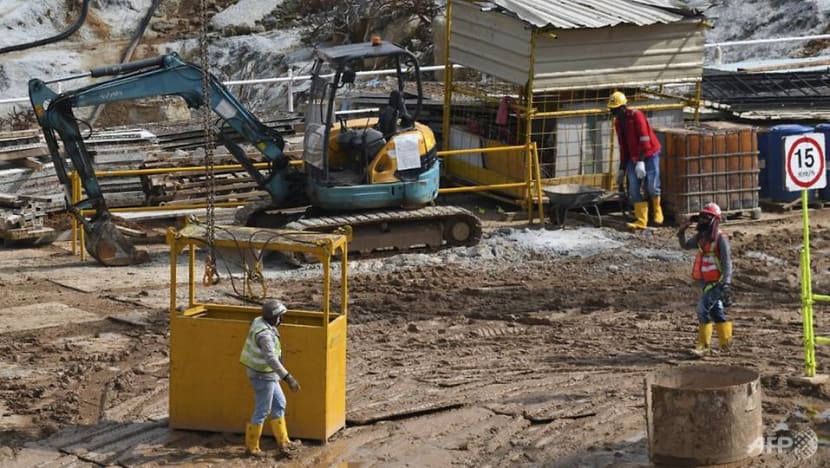
In Raj’s case, lawyers spoke to the employment agent and the construction company but neither party budged.
They also helped him print the necessary documents needed to explain his case to MOM.
A ministry officer told Raj that he had to hand-deliver a letter to the unauthorised employer confirming he did not want the contract, so the lawyers drafted a resignation letter for him and got an office manager to drive him to their office to print it.
The office manager accompanied him to the construction company’s office the next morning to drop off the letter, then waited together for a few hours at the door to prove that the office was closed, before taking a picture as evidence that he had delivered the letter when he slid the signed notice under the company’s door.
After all that work, Raj was told that the fraudulent application would be cancelled. His permit to remain in Singapore would be extended and he could accept the new position with his new employer.
“I am … grateful to have the fake work permit issue resolved and the opportunity to start again with a new employer. I will remember for a lifetime the help that Tessa and her team has given to me," Raj said.
His real name was not used in this report due to the sensitivity of his case.
Each case takes between 12 and 20 hours, said Ms Davis, and they mostly involve recovering wages from employers, unjust practices by employment agencies, or getting employers to write transfer letters allowing workers to switch jobs instead of repatriating them.
READ: Company director jailed for withholding salaries of foreign workers, making them pay for work pass renewals
READ: Company director faces 66 charges including collecting kickbacks from and illegally hiring foreign workers
Most of these workers don’t have a strong command of the English language or documentation, so it is often very difficult for them to recount what has happened in clear terms, Ms Davis said.
This could affect the outcome if they had to explain their request to MOM representatives, or the parties they are up against.
Often, the employer or employment agency pays up or hands over a transfer letter after lawyers get involved, Ms Davis said.
In cases that require formal legal advice, Ms Davis ropes in local firm TSMP Law Corporation, which has experience doing pro bono work for migrant worker rights groups like HOME and TWC2.
“When you need a lawyer to give Singapore legal advice or to fight in court, that’s when we need to get rustled up,” said Stefanie Yuen-Thio, the managing partner of TSMP.
WORKING WITH NGOS
More lawyers are getting involved in pro bono work.
It has been about three months since Ms Davis got involved in cases through IRR. Since then, her team dealing with such cases has grown from three to nine.
She said several of Morrison & Foerster's clients - who each have their own in-house legal teams - recently asked how they can get involved as well.
Ms Davis was approached by IRR founder Dipa Swaminathan around the end of May.
The organisation was, at that time, “inundated with requests” over workers’ grievances due to uncertainties over COVID-19 and the dormitory lockdowns, said Ms Davis.
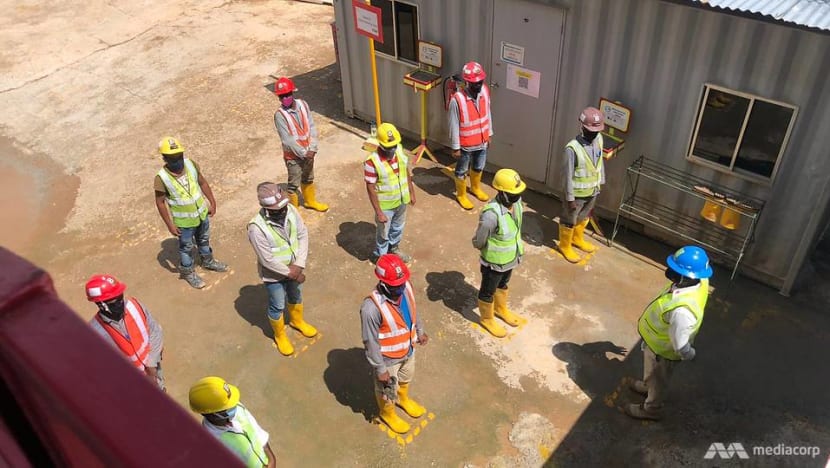
Ms Swaminathan’s team manages the first level of cases that come in. About 90 per cent of them are resolved by IRR volunteers, some of whom are lawyers as well.
There is “no magic formula” in choosing which cases are sent to Ms Davis’ team, Ms Swaminathan said, but they tend to be more serious ones.
“The worker is kind of vulnerable. And some employers might think that workers don’t have a circle of well-wishers around them to come to the worker’s aid in times of distress. This makes the worker even easier to be taken advantage of,” Ms Swaminathan said.
Just having somebody write a clear and persuasive letter in a formal language to the employer, state facts in an objective and detailed manner to the authorities, or provide the worker with the assurance that there are lawyers overseeing their situation is extremely helpful, she added.
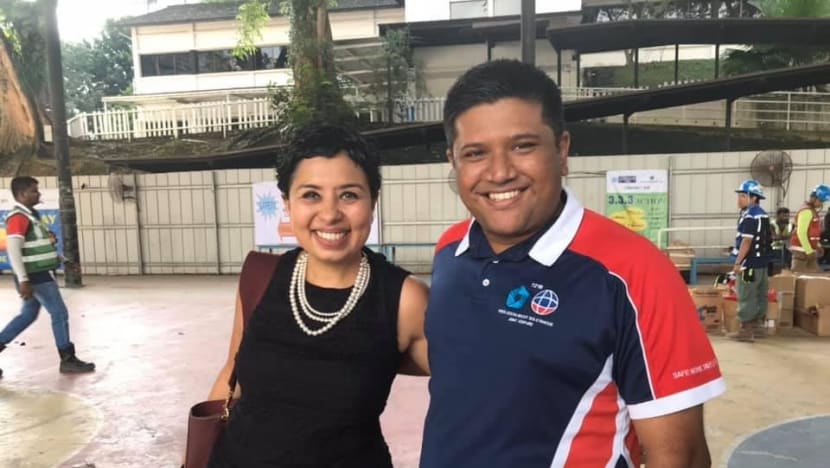
“I think it’s wonderful,” said Ms Swaminathan, commending the work of the lawyers.
“People are coming forward to give up their time in their personal capacity to speak up for these workers …. giving a voice to the voiceless. And when that voice comes from a legally trained person, it becomes a very powerful voice,” she added.
Lawyers from K&L Gates Straits Law, as well as legal counsels from Facebook and Singtel recently volunteered to help IRR in their personal capacity, she highlighted.
Ms Yuen-Thio said it is rare for an international law firm in Singapore to be so deeply drawn into such pro bono work which is more demanding on time as the lawyer could have to “drop everything” to help a worker who only has a few hours to get his issue solved.
“I’ve done a lot of pro bono work, but the emotional investment in reviewing contracts or serving on the board of an NGO is a lot less than when you have someone’s life, livelihood and the wellbeing of his family back home at stake,” she said.
ACCESS TO JUSTICE
Ms Davis dismissed suggestions that lawyers doing pro bono work take their role more lightly compared to paid work.
Lawyers who work on a pro bono basis for foreign workers came into the spotlight recently after Mr Anil Balchandani secured a successful acquittal for former domestic helper Parti Liyani. Ms Parti was accused of stealing from her then-employer, former Changi Airport Group chairman Liew Mun Leong.
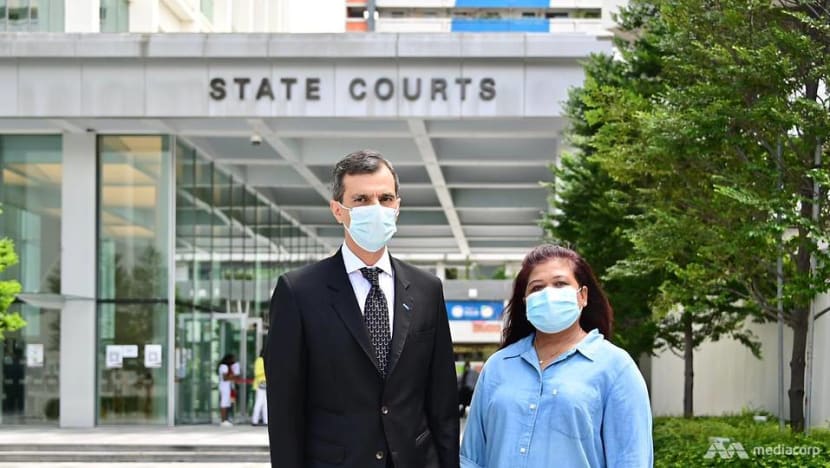
Mr Balchandani won praise for his dedication and hard work as her defence counsel. The judge who delivered the acquittal, Justice Chan Seng Onn, also commended him on his pro bono services.
READ: Parti Liyani files court action to seek disciplinary proceedings against prosecutors in her case
“When a firm gets involved in a case on a pro bono basis … they are a hundred per cent committed to the importance of pro bono and providing the same level of service that they would for a paying client,” Ms Davis said.
“And in many cases, that assistance goes above and beyond that standard,” she added, referring to the office manager who spent hours sitting with Raj outside the construction company's office to make sure she captured the necessary proof.
“Somebody’s life is going to be impacted here and so, the lawyers that are volunteering to do this, they want to be involved, they want to make a difference - so they’re just so keenly happy to be involved in a case where they can do that,” she added.
“The whole ‘equal access to justice’ idea - I know it sounds high-minded, but it is the thing that really motivates us: That somebody risks being deprived of access to justice, just because of their socio-economic status,” said Ms Davis.
“(These) are things that lawyers are supposed to care about because, as lawyers, we can play a pivotal role in helping to provide that access to justice.”














